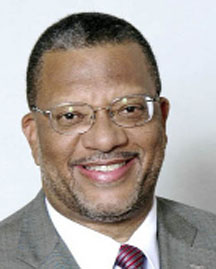Even as the banking sector elsewhere in the region appears to be forging ahead with preparations for compliance with the new United States Foreign Account Tax Compliance Act (FACTA) there remains an inexplicable silence in Guyana on just how commercial banks will respond to the new law.
FACTA will require non-US financial institutions to report to the Internal Revenue Service (IRS) information regarding financial accounts held by US taxpayers, including businesses and other entities in which they hold significant ownership interests. Enacted in 2010 and due to come into force in January next year, the legislative intent of FACTA, according to a briefing paper put out in April by the accounting firm Deloitte and Touche is “to ensure that there is no gap in the ability of the US government to determine the ownership of US assets in foreign accounts” which include accounts that might be held in commercial banks in Guyana.

Earlier this month, the banking sector and the government in Jamaica convened a conference dedicated to discussing the implications of FACTA for commercial banks and other financial institutions in the country at which Finance Minister Dr Peter Phillips called on regional financial institutions to prepare for the implementation of FACTA. While Philips told the conference that “the final regulatory arrangements” that will attend the implementation of FACTA “are still not clear,” he cautioned about the “asymmetries of power and influence that exist” and said that the banking sector in the region should “be prepared.” The new US law provides for penalties for non-US banking and other financial institutions that decline to cooperate with the IRS.
Stabroek Business has raised the issue of how local commercial banks are likely to proceed in addressing the new US law with some banking institutions and while neither the banks nor the local Bankers Association have made a public pronouncement on the matter, banking sources have told this newspaper that the issue of how local banks are likely to respond to FACTA will almost certainly be discussed at the level of the Bankers Association which is chaired by the Country Manager of Scotiabank Amanda St Aubyn.
Several weeks ago the Stabroek Business published a story in which it quoted an unnamed banking official as saying that local commercial banks would almost certainly all comply with the the new US law. Since then the local banking community has shied away from commenting publicly on the issue though another local banking source has told this newspaper that “it (FACTA) is not an issue which financial institutions in Guyana can avoid.”
Under the new US law participating Foreign Financial Institutions (FFIs) must enter into agreements with the IRS that require them to provide the names, addresses and Taxpayer Identification Number (TIN) of account holders who are United States citizens together with the account balance or value, and the gross receipts and gross withdrawals or payments from the account. The time line for entry into such agreements provided by the IRS and the US Treasury Department requires that banks comply by June 30 next year in order to ensure that it be established that they are participating FFIs.
Earlier this week another local commercial bank official who conceded to not being “close to the goings-on” as far as a local response to FACTA was concerned said that it was “more likely than not”: that the Guyana commercial banking community would have “a collective response” to FACTA. “You have to expect that no bank here would want to come up against the US Treasury Department,” the source added.
Local discussions on the new US law will include the participation of the Bank of Guyana, which, this newspaper understands, will have to examine the state of preparedness of local commercial banks to sign on to the FACTA as participating FFI’s. The Jamaican government has already announced that it will be putting a menu of measures in place to help its own commercial banks prepare for FACTA.
Widespread speculation on how commercial banks in the region are likely to respond to FACTA has included the view that the law could have the effect of causing some banks in the region to reduce the extent to which it does business with both US citizens and dual-status taxpayers, who, once holding US residency status, will, under the FACTA regulations, be regarded as a US taxpayer. Banks will be required to implement enhanced due diligence mechanisms that will, in some instances, require banks to tighten their operating systems to protect against money-laundering. With the deadline for compliance now less than a year away local commercial banks would appear to be “off the pace” as far as undertaking operational modifications is concerned. The local banking source told this newspaper, however, that “one might assume that the public silence does not mean that local banks are not, even now, working behind the scenes to put themselves in order” for the advent of FACTA.





